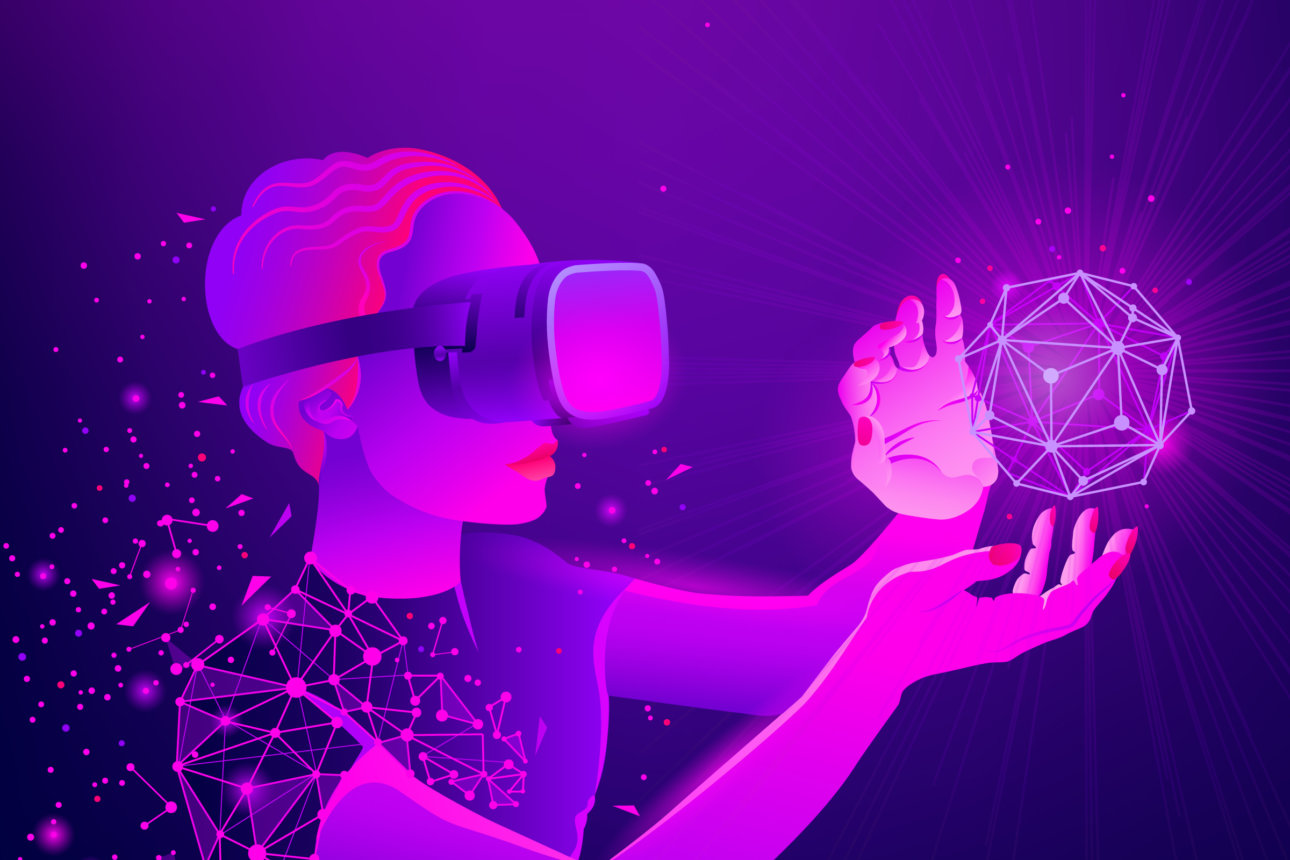Preparing for the Risky World of Extended Reality
XR, the reality-bending technology that will have many applications across industries, is still in its early stages. But leaders must strategize around implementation risks now.
Topics
Frontiers

T.S. Eliot wrote that “humankind cannot bear very much reality.” Will it be any easier to bear with extended reality, with its high risks and potential rewards?
The development and use of extended reality, or XR — an umbrella term that encompasses virtual reality, augmented reality, and other technologies that blur the line between the real world and simulated worlds — has reached a tipping point. No longer will these technologies primarily serve as tools for gaming and other forms of entertainment. Consumer spending on XR is estimated to rise from $5 billion spent in 2018 to $40 billion in 2023 while industry spending outstrips it, surging from $4 billion to $121 billion in that period. And that investment will go toward a wide range of innovations, such as the ability to conduct remote surgery and training, and applications that will increase productivity on the factory floor.
As with other transformative technologies, like AI, the rapid uptake of XR demands preemptive vigilance. XR data is profoundly personal, raising heightened privacy and security concerns, while XR tools make direct connections to our mental faculties and perceptions of reality that are not yet fully understood. Missteps with these technologies risk harm to individuals and society that could be incredibly hard to reverse.
So there’s an urgency and a necessity to get this right from the outset. Because XR is not yet mainstream, few companies have designed responsible measures to prevent, or at least mitigate, potential negative consequences of the technology. As part of a research project with the G20 Young Entrepreneurs’ Alliance, Accenture identified six risks that business leaders can begin to strategize around now, while they’re still in the early stages of XR implementation.
Email Updates on the Future of Work
Monthly research-based updates on what the future of work means for your workplace, teams, and culture.
Please enter a valid email address
Thank you for signing up
1. Managing personal data. As we move into the next phase of extended reality, personal data will no longer just include people’s credit card numbers, purchase histories, and likes and dislikes on their social media networks. Personal data will mean everything that makes someone a person: feelings, behaviors, judgments, and physical appearance.
Researchers at the Institute of Ethics at Dublin City University and Dublin’s Insight Centre for Data Analytics are studying the potential effects of these trends in the next generation of social networking: virtual reality social networks, or VRSNs.

Comment (1)
akaash gupta